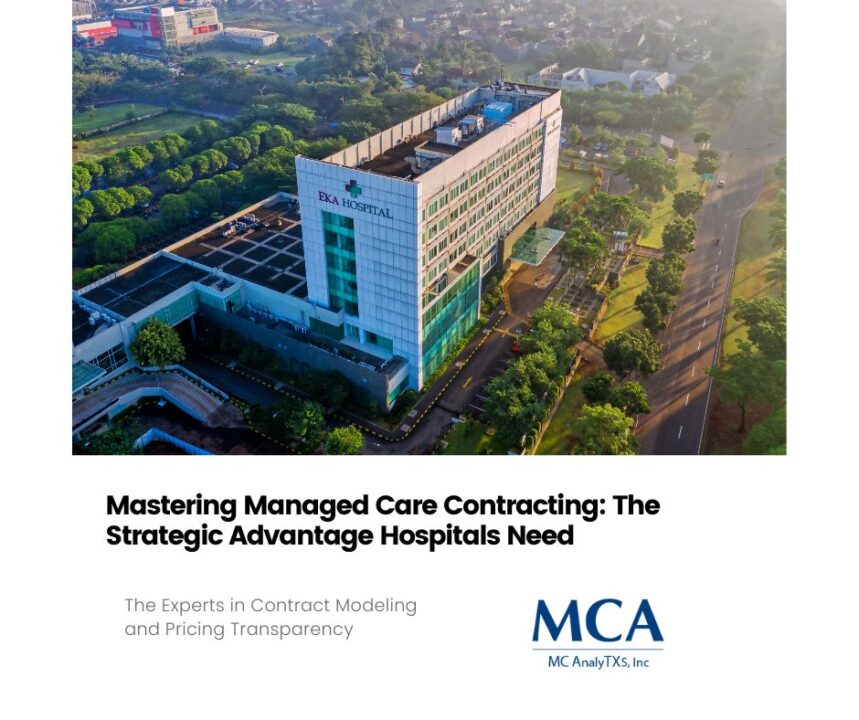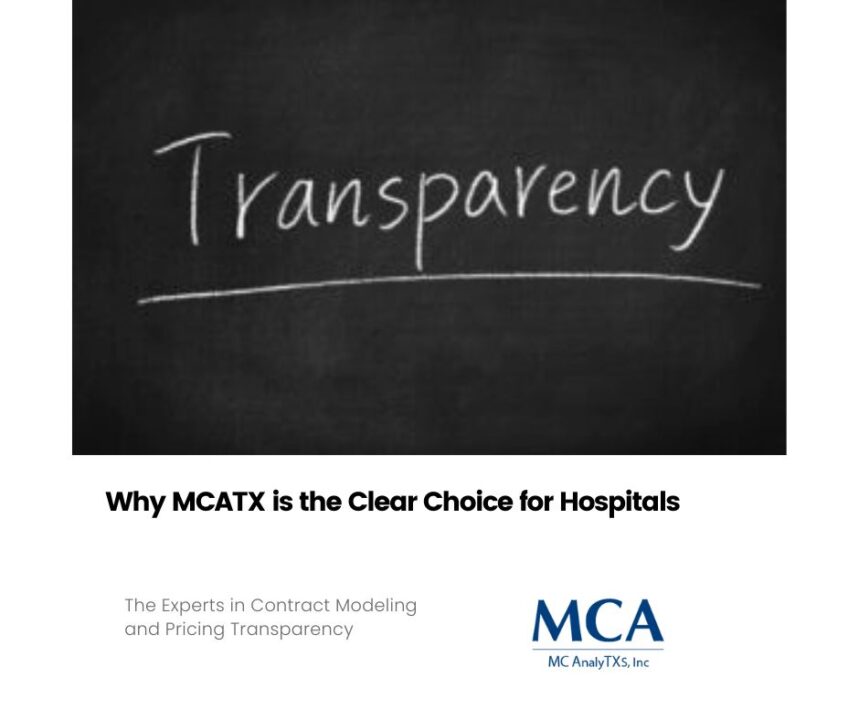
Why Your Organization Needs Experts in Contract Modeling and Pricing Transparency in Today’s Healthcare Landscape
May 21, 2024
Navigating the Complex Landscape of Healthcare Revenue Cycles: Efficiency Strategies from Leading Health Systems
May 28, 2024Revenue Cycle Management (RCM) is an essential aspect of healthcare operations, directly impacting the financial health of medical facilities. With the increasing complexity of healthcare systems and insurance policies, understanding the nuances of RCM is crucial for healthcare professionals and revenue cycle managers alike. In this article, we delve into the four critical points that commonly influence denials in RCM and offer strategies to mitigate these issues.
Introduction to Revenue Cycle Management (RCM) and Its Importance in Healthcare
Revenue Cycle Management (RCM) encompasses the entire financial process of a healthcare facility, from patient registration and appointment scheduling to billing and payment collection. Effective RCM ensures that healthcare providers are reimbursed for their services in a timely and accurate manner, which is vital for maintaining operational efficiency and financial stability.
Denials occur when insurance companies refuse to pay for services rendered, often due to errors or omissions in the billing process. Denials can significantly impact the revenue cycle, leading to cash flow problems and increased administrative burdens. By understanding and addressing the root causes of denials, healthcare providers can improve their RCM performance and enhance financial outcomes.
Overview of the 4 Critical Points that Commonly Influence Denials in RCM
- Inaccurate Patient Information
- Lack of Insurance Verification
- Coding Errors
- Incomplete or Delayed Documentation
Detailed Analysis of Each Critical Point
1. Inaccurate Patient Information
Inaccurate patient information is one of the most common causes of claim denials. Errors in patient data, such as incorrect names, dates of birth, or insurance policy numbers, can lead to mismatches and rejections by insurance companies.
Example:
A patient’s name is misspelled during registration. When the claim is submitted to the insurance company, it does not match the data on file, resulting in a denial.
Best Practices for Improvement:
- Implement a robust patient registration process with verification steps to ensure accuracy.
- Train staff to double-check patient information during intake.
- Utilize electronic verification tools to cross-check patient data with insurance records.
2. Lack of Insurance Verification
Insurance verification is critical to ensuring that the services provided are covered by the patient’s insurance plan. Failure to verify insurance details prior to service delivery can result in denials due to issues such as inactive policies or lack of coverage for specific treatments.
Example:
A patient receives a procedure that is not covered under their current insurance plan. The claim is subsequently denied by the insurer.
Best Practices for Improvement:
- Establish a pre-registration process that includes insurance verification.
- Use automated verification systems to check insurance eligibility and benefits in real-time.
- Communicate with patients about their insurance coverage and any potential out-of-pocket expenses before treatment.
3. Coding Errors
Accurate medical coding is essential for claim approval. Errors in coding, such as incorrect procedure codes, diagnosis codes, or mismatched codes, can lead to denials.
Example:
A procedure is coded incorrectly, resulting in a mismatch with the diagnosis code. The insurance company denies the claim due to the inconsistency.
Best Practices for Improvement:
- Provide ongoing training for coding staff to stay updated on coding standards and guidelines.
- Implement a coding audit process to identify and correct errors before claim submission.
- Use advanced coding software to reduce manual errors and improve accuracy.
4. Incomplete or Delayed Documentation
Timely and complete documentation is crucial for successful claim submission. Missing or delayed medical records can lead to denials, as insurers require comprehensive documentation to process claims.
Example:
A claim is submitted without the necessary medical records, leading to a denial until the documentation is provided.
Best Practices for Improvement:
- Ensure that all required documentation is included with the initial claim submission.
- Train clinicians on the importance of timely and thorough documentation.
- Utilize electronic health record (EHR) systems to streamline documentation and reduce delays.
The Impact of Denials on Healthcare Facilities and the Revenue Cycle
Denials can have a significant impact on healthcare facilities, affecting both financial performance and operational efficiency. High denial rates can lead to:
- Reduced cash flow and financial instability.
- Increased administrative costs associated with reworking and resubmitting claims.
- Lower staff morale due to the additional workload and stress of managing denials.
- Potential harm to patient satisfaction and trust if billing issues are not resolved promptly.
Strategies and Tools for Preventing Denials and Improving RCM Performance
Preventing denials requires a proactive approach and the implementation of best practices across the revenue cycle. Here are some strategies and tools to consider:
- Invest in Training and Education: Regular training for staff on the latest coding standards, insurance policies, and RCM best practices can help reduce errors.
- Leverage Technology: Utilize RCM software and automation tools to streamline processes, reduce manual errors, and improve efficiency.
- Conduct Regular Audits: Perform periodic audits of claims and documentation to identify and address potential issues before they lead to denials.
- Enhance Communication: Foster clear communication between clinical, administrative, and billing teams to ensure accuracy and completeness in all aspects of the revenue cycle.
- Engage with Payers: Build strong relationships with insurance companies and engage in open dialogue to resolve issues and understand payer requirements.
Conclusion
Revenue Cycle Management (RCM) is a critical component of healthcare operations, and addressing the common causes of denials is essential for maintaining financial health and operational efficiency. By focusing on accurate patient information, insurance verification, proper coding, and complete documentation, healthcare providers can significantly reduce denials and enhance their RCM performance.
A proactive approach, coupled with the right strategies and tools, will enable healthcare facilities to navigate the complexities of RCM effectively, ensuring better financial outcomes and improved patient satisfaction.
For additional insights and resources on optimizing your revenue cycle, follow our blog and stay connected with industry trends and best practices.
—
By implementing these best practices and utilizing advanced tools, healthcare professionals and revenue cycle managers can proactively address the critical points influencing denials in RCM, ultimately driving better financial performance and operational efficiency





